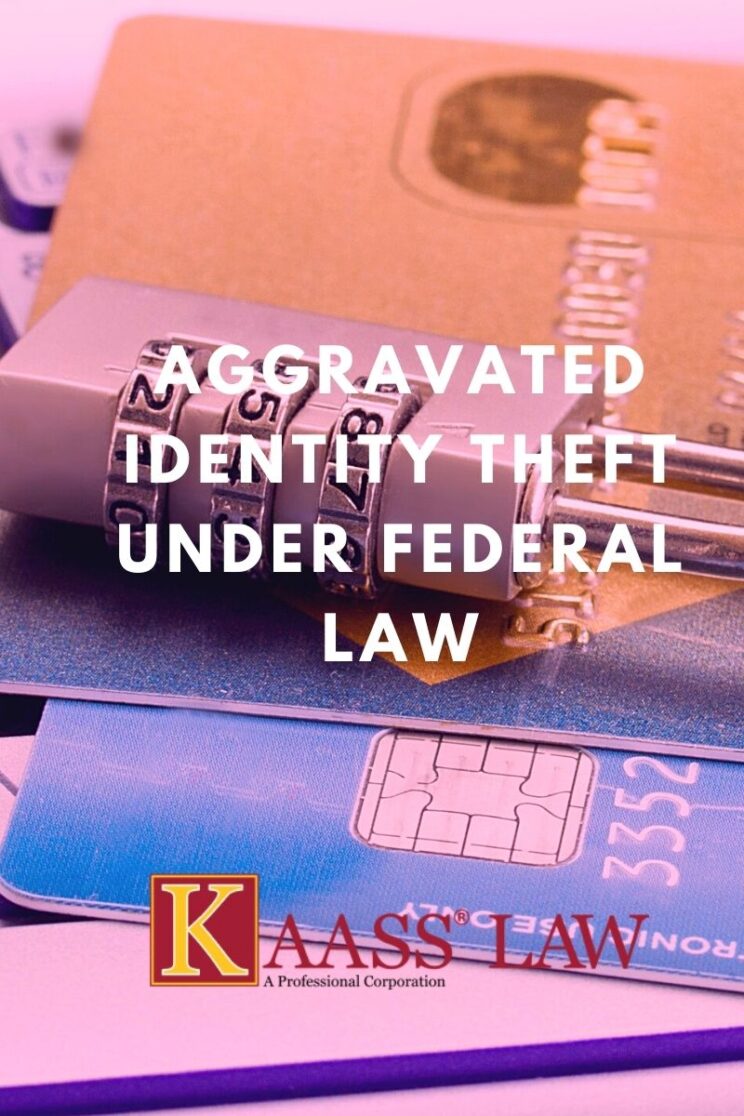According to 18 US Code Section 1028, it is prohibited to knowingly transfer, possess, or use without lawful authority, a means of identification of another person with the intention to commit or to aid or abet, or in connection with, any unlawful activity that constitutes a violation of federal law. Under 18 US Code Section 1028A aggravated identity theft is defined as the knowing and unauthorized possession, transfer, or use of a means of identification in the commission of certain felonies.
The Felonies which Trigger the Aggravated Identity Theft Statute are the following:
- Theft of public money or property: 18 USC 641
- Theft, embezzlement, or misapplication by a bank officer or employee: 18 USC 656
- Theft from employee benefit plans: 18 USC 664
- False personation of citizenship: 18 USC 911
- False statements made in connection with the acquisition of a firearm: 18 USC 922(a)(6)
- Any crime from Chapter 47 of USC relating to fraud and false statements
- Any crime from Chapter 63 of USC relating to mail, bank, and wire fraud
- Any crime in Chapter 69 of USC relating to nationality and citizenship
- Any crime in Chapter 75 of USC relating to passports and visas
- 15 USC 6821 relating to obtaining customer information by false pretenses
- Violations concerning willfully failing to leave the US after deportation and creating a counterfeit alien registration card
- USC 1321-1330Immigration offenses
- False statements relating to Social Security programs
What is 18 USC Section 1028a?
Basically, 18 USC Section 1028a functions as an enhancement to a federal defendant who was found guilty of different federal crimes listed in subsection “c” of Section 1028A. Aggravated identity theft provides for an extra mandatory consecutive sentence to any sentence imposed upon the underlying crime for a defendant who knowingly possessed, transferred, or used another person’s identification
To Be Found Guilty of Federal Aggravated Identity Theft The Prosecution Must Prove
The prosecutor must prove beyond a reasonable doubt the following elements to convict the defendant of federal aggravated identity theft:
- Defendant knowingly possessed, transferred, or used another person’s identification documents or means of identification
- Defendant did so without lawful authority
- Defendant did so during and in relation to the eligible felony alleged in the indictment.
“Means of Identification” For Federal Aggravated Identity Theft
Means of identification is any name or number used, alone or together with any other information, to identify a person, including a name, date of birth, social security number, driver’s license or identification number, passport number, alien registration number, the taxpayer or employer identification number, routing code or electronic identification number.
Conspiracy to Commit Federal Aggravated Identity Theft
The defendant may face criminal charges when the identity theft has not even occurred as the attempted identity theft carries the same penalties as the theft. Conspiracy to commit identity theft is treated similarly. Helping another one to commit identity theft can also be considered a crime. The unlawful actions can be considered a crime even if the defendant never gained any financial benefit by using another one’s information.
What are The Penalties for 18 U.S Code 1028a Aggravated Identity Theft Conviction?
The penalties for a 18 U.S Code 1028a Aggravated Identity Theft Conviction including the following:
In addition to any punishment, the judge imposes for the underlying federal crime the defendant faces a minimum mandatory sentence of two years imprisonment for aggravated identity theft.
-
Terrorism-Related Sentencing
In case the underlying felony is related to terrorist activity the minimum mandatory sentence for aggravated identity theft increases from two years to five years imprisonment.
Federal Aggravated Identity Theft Defense Attorney
If you or a loved one is charged with federal aggravated identity theft, we invite you to contact our Glendale criminal defense attorney at KAASS LAW at (310) 943-1171 for a free consultation and case review. Our staff speaks Spanish, Armenian, Russian, and French.

